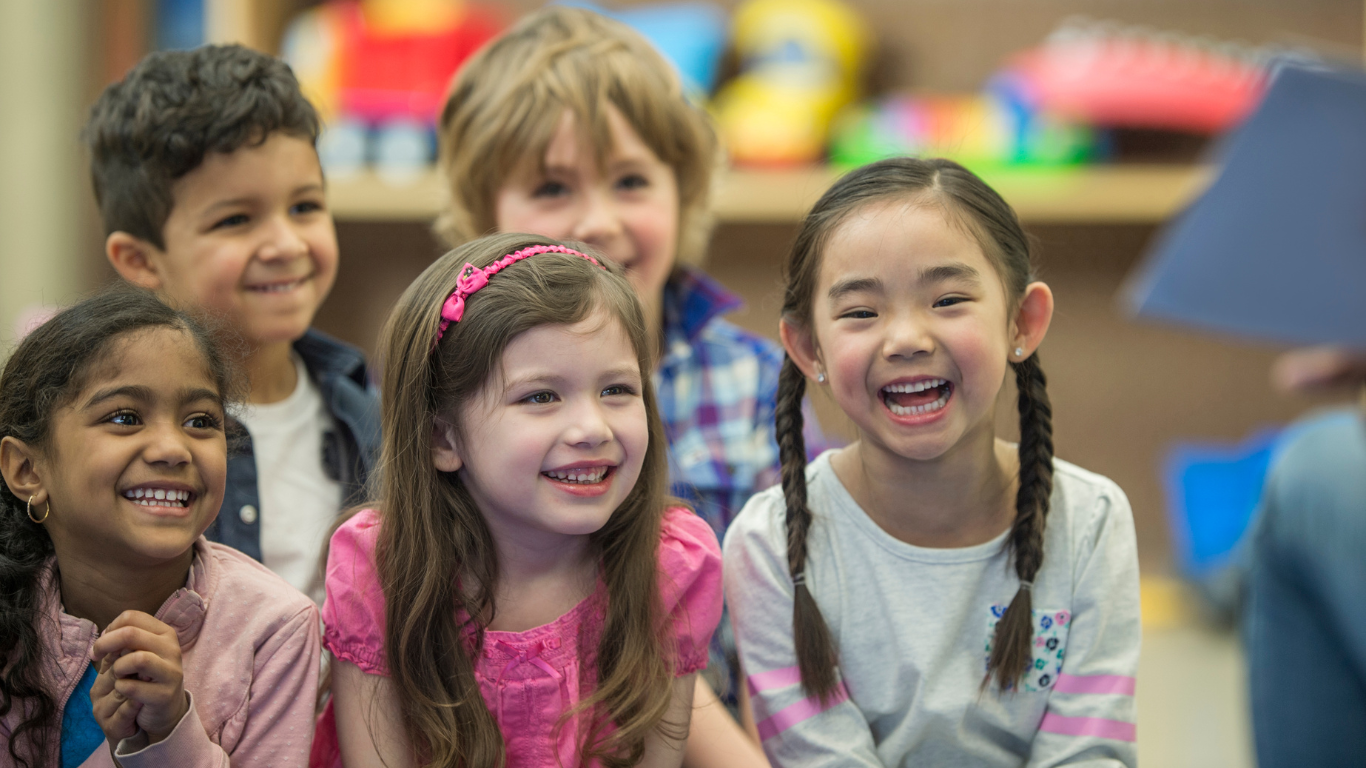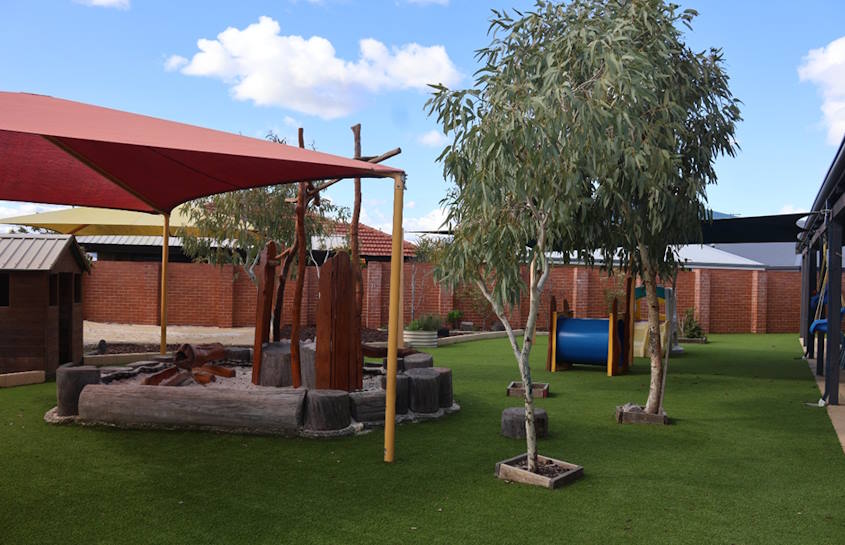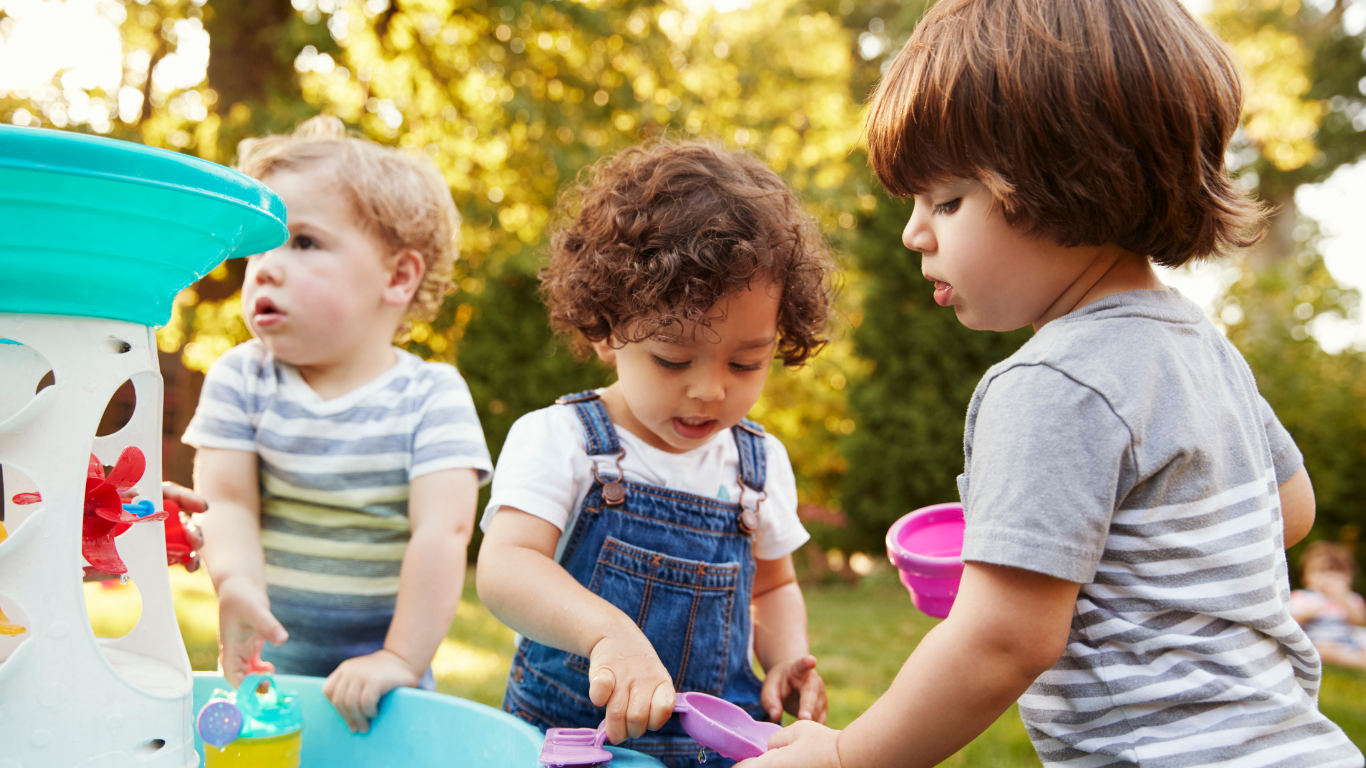
Outdoor Activities for Toddlers in Childcare
At Warooga Child Care, we recognise the importance of outdoor play for toddlers. It’s not just fun and games; it’s a vital part of their growth and learning. Engaging with nature and exploring the outdoors helps little ones develop physically, socially, and cognitively. In this article, we’ll explore the benefits of outdoor activities for our toddlers and how Warooga promotes safe and enriching experiences in the great outdoors.
Key Takeaways
- Outdoor play is essential for toddlers’ physical and social development.
- Activities like sand play and obstacle courses enhance motor skills and sensory learning.
- Nature walks help children connect with their environment and stimulate curiosity.
- Safety in outdoor play includes supervision and appropriate equipment.
- Warooga integrates outdoor learning with community involvement and parental support.
Benefits Of Outdoor Play For Toddlers
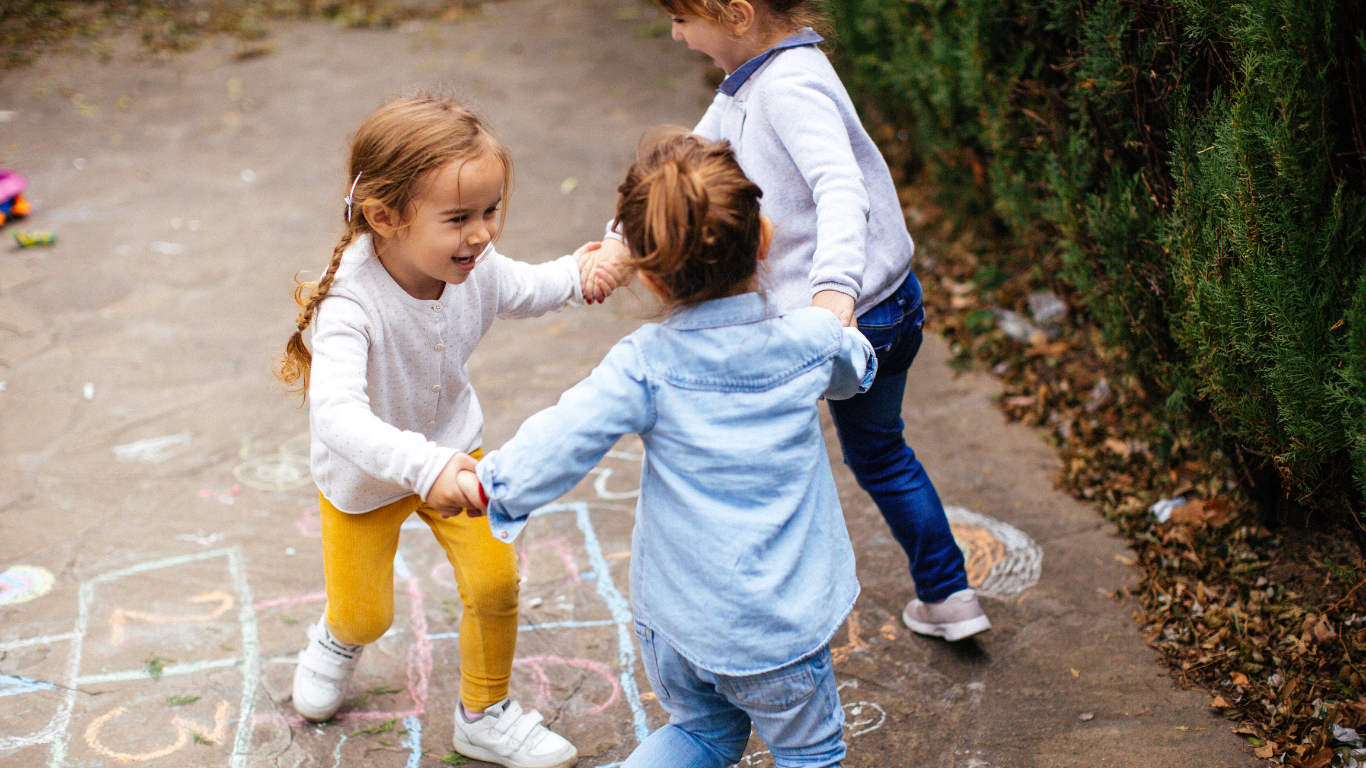
Getting kids outside to play isn’t just about burning off energy; it’s super important for their growth and development. There are so many benefits of outdoor activities for toddlers, and we see them firsthand here at Warooga Child Care. Let’s look at some key areas where outdoor play makes a real difference.
Physical Development Through Movement
Outdoor play is fantastic for building gross motor skills. Running, jumping, climbing – all these activities help toddlers develop their muscles, coordination, and balance. It’s about giving them the space to move freely and explore their physical capabilities. Think about it: inside, they might be restricted by furniture or space, but outside, the sky’s the limit! This freedom of movement is vital for their physical health and sets them up for an active lifestyle later on. Plus, all that fresh air is a bonus!
Social Skills And Teamwork
Playing outside often involves interacting with other kids, which is a great way to develop social skills. Whether they’re building a sandcastle together, playing chasey, or negotiating turns on the swing, they’re learning how to communicate, cooperate, and resolve conflicts. These early interactions are crucial for building empathy and understanding social cues. It’s amazing to see how quickly they learn to share and work together when they’re engaged in a fun outdoor activity. These skills are the building blocks for future relationships and teamwork.
Cognitive Growth And Exploration
Outdoor environments are full of opportunities for exploration and discovery. From examining insects to collecting leaves, toddlers are constantly learning about the world around them. This hands-on experience stimulates their curiosity, encourages problem-solving, and enhances their cognitive development. The natural world provides a rich learning environment that can’t be replicated indoors.
Outdoor play encourages children to think critically, make observations, and ask questions. It’s about letting them explore, experiment, and learn through their own experiences. This type of learning is much more engaging and memorable than simply being told something.
Here are some examples of cognitive development through outdoor play:
- Problem-solving: Figuring out how to build a stable tower of blocks.
- Observation: Noticing the different types of leaves on trees.
- Creativity: Using natural materials to create art.
Understanding environmental awareness is also a big part of cognitive growth. Ultimately, why outdoor play is important in early learning comes down to providing a holistic environment where children can grow physically, socially, and intellectually.
Engaging Outdoor Activities At Warooga
At Warooga Child Care, we believe that outdoor play is a vital part of a toddler’s development. We’ve designed our outdoor spaces and activities to be both fun and educational, encouraging children to explore, learn, and grow in a safe and stimulating environment. We focus on activities that cater to different learning styles and developmental stages, ensuring every child has the opportunity to thrive.
Sand Play For Sensory Learning
Sand play is a classic for a reason! It’s a fantastic way for toddlers to engage their senses and develop fine motor skills. At Warooga, our sandpits are more than just a place to dig; they’re a sensory learning hub. We provide a variety of tools like buckets, spades, and moulds to encourage creativity and exploration. Children can build castles, dig tunnels, and create patterns in the sand, all while developing their hand-eye coordination and problem-solving abilities. We also incorporate water into sand play to introduce new textures and possibilities.
Obstacle Courses For Motor Skills
Our obstacle courses are designed to challenge and develop toddlers’ gross motor skills in a fun and engaging way. We use a variety of equipment, including tunnels, stepping stones, and low balance beams, to create courses that encourage climbing, crawling, and balancing. These activities help children develop their coordination, strength, and spatial awareness. We regularly change the layout of the obstacle courses to keep things fresh and challenging, ensuring that children are constantly learning and developing new skills. Safety is always our top priority, and our staff closely supervise children as they navigate the courses.
Nature Walks To Explore The Environment
Nature walks are a wonderful way to connect children with the natural world and foster a sense of curiosity and wonder. At Warooga, we take regular nature walks in our surrounding areas, exploring local parks and gardens. During these walks, children have the opportunity to observe plants, animals, and insects in their natural habitats. We encourage them to ask questions, make observations, and collect natural materials like leaves, sticks, and stones. These materials can then be used for art projects and other creative activities, extending the learning experience beyond the walk itself. We also use nature walks as an opportunity to teach children about environmental awareness and the importance of protecting our planet. You can find out more about our child care subsidies on our website.
“Engaging with nature is so important for young children. It stimulates their senses, encourages exploration, and fosters a love for the environment. Our nature walks are a highlight for many of our toddlers, providing them with opportunities to learn and grow in a natural setting.”
Creating A Safe Outdoor Environment
Outdoor play is fantastic for toddlers, but safety is always the top priority. It’s about finding the right balance – letting kids explore and challenge themselves while minimising risks. So, how do we make sure our Warooga childcare outdoor spaces are safe havens for our little adventurers?
Supervision During Play
Constant supervision is key. It’s not enough to just be present; educators need to be actively watching and engaging with the children. This means understanding each child’s abilities and limitations, and being ready to step in if needed. We also need to think about the environment itself. Are there any blind spots? Do we need extra staff during busy periods? Active supervision prevents most accidents.
Safe Equipment And Materials
All equipment, from swings to climbing frames, needs to be age-appropriate and regularly checked. Look for wear and tear, loose parts, or anything that could pose a hazard. Materials used in sandpits or for art activities should be non-toxic and suitable for young children. We also need to think about the ground surface. Is it soft enough to cushion falls? Here’s a quick checklist we use:
- Daily visual checks of all equipment
- Regular maintenance schedule
- Use of soft-fall surfaces under play equipment
- Age-appropriate equipment selection
Risk Assessment And Management
Before any outdoor activity, a thorough risk assessment is essential. This involves identifying potential hazards, evaluating the level of risk, and implementing control measures to minimise those risks. It’s not about eliminating all risks – some risk is important for development – but about managing them effectively. For example, if we’re going on a nature walk, we’ll check the weather forecast, plan a safe route, and ensure everyone has appropriate clothing and footwear. We also need to have a plan in place for dealing with minor injuries, like scrapes and bumps. It’s all about being prepared and proactive. You can find more essential tips at Safety4Kids.
We believe that a well-managed risk is a learning opportunity. It teaches children about consequences, decision-making, and self-preservation. It’s about empowering them to make safe choices, not shielding them from every possible danger.
Incorporating Nature Into Play
It’s easy to forget how much kids love just being outside. We reckon bringing nature into their play isn’t just about fun; it’s about sparking curiosity and helping them learn about the world around them. How can we make the most of natural play spaces? Let’s explore some ideas.
Building Natural Play Spaces
Think beyond the usual plastic playground. Natural play spaces can be as simple as a corner of the yard dedicated to digging in the dirt or a collection of logs and rocks for climbing. The key is to use what’s already available and let the kids’ imaginations do the rest. We’ve found that even a small patch of native plants can become a world of adventure for toddlers. Consider adding elements like:
- A mud kitchen for messy play.
- A teepee made from branches.
- A small water feature (with supervision, of course!).
Using Natural Materials For Creativity
Forget the expensive art supplies sometimes. Nature provides a treasure trove of materials for creative expression. Leaves, sticks, stones, and flowers can all be used in art projects, building activities, and imaginative play. We often encourage the children to collect natural items on our nature walks and then use them to create collages, sculptures, or even just to decorate their sandcastles. It’s amazing to see what they come up with!
Encouraging Environmental Awareness
Playing in nature is a great way to teach kids about the environment and the importance of protecting it. We talk about the different plants and animals we see, and we encourage the children to respect their surroundings.
We also try to incorporate simple lessons about sustainability, like recycling and composting. It’s never too early to start instilling a love for nature and a sense of responsibility for the planet. By fostering environmental awareness, we’re helping to shape the next generation of eco-conscious citizens.
Supporting Development Through Outdoor Play
Outdoor play is more than just fun and games; it’s a vital ingredient in a toddler’s overall development. It helps them grow in confidence, sparks their imagination, and boosts their emotional wellbeing. Let’s look at how Warooga Child Care uses outdoor activities to support these key areas.
Enhancing Confidence And Independence
Outdoor play provides toddlers with opportunities to test their limits and develop a sense of self-reliance. Whether it’s climbing a small hill, navigating a new playground, or simply choosing which activity to engage in, these experiences help build confidence. Successfully completing these tasks, no matter how small, gives them a sense of accomplishment and encourages them to try new things. It’s amazing to watch them grow more independent as they explore the world around them.
Fostering Creativity And Imagination
Nature is the ultimate playground for imagination. A simple stick can become a magic wand, a pile of leaves can transform into a cosy home for woodland creatures, and a muddy puddle can be a whole ocean to explore. Outdoor play encourages children to think outside the box, solve problems creatively, and develop their own unique narratives. We see this every day at Warooga, and it’s truly inspiring.
Promoting Emotional Wellbeing
Spending time outdoors has a calming and restorative effect on children. The fresh air, sunshine, and natural surroundings help to reduce stress and anxiety, promoting a sense of peace and wellbeing. Outdoor play also provides opportunities for children to express their emotions in a healthy and constructive way, whether it’s through laughter, excitement, or quiet contemplation.
Here are some ways we see emotional wellbeing improve:
- Reduced anxiety levels
- Improved mood and overall happiness
- Increased self-esteem and confidence
Warooga’s Approach To Outdoor Learning
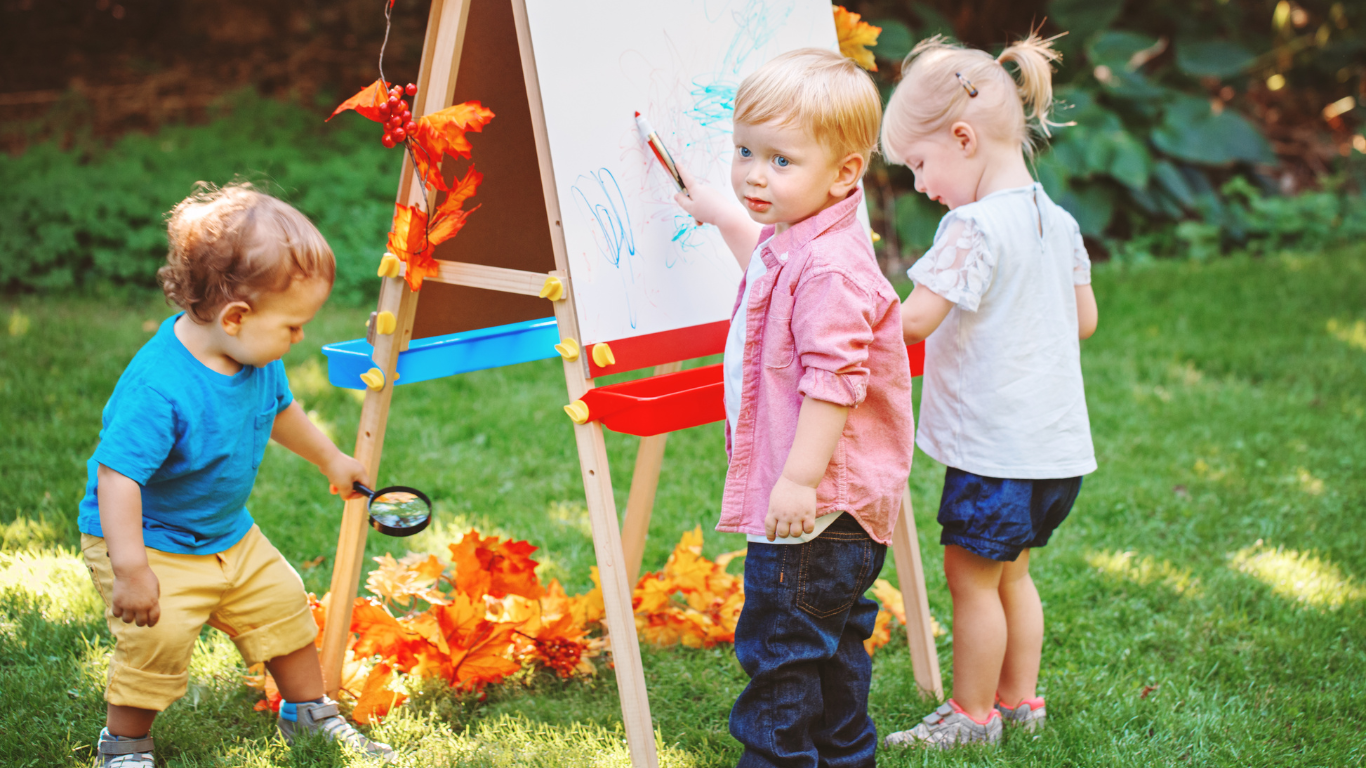
At Warooga Child Care, we reckon outdoor learning is a big deal. It’s not just about letting the kids run wild (though there’s definitely time for that!). We’ve got a proper plan to make sure they’re getting the most out of their time in the sun and fresh air. It’s all about striking a balance and making sure everything we do outside has a purpose, whether it’s learning about nature, developing skills, or just having a good old time.
Structured Playtime And Free Play
We get that kids need both structure and freedom. That’s why we split our outdoor time into two main chunks: structured playtime and free play. Structured playtime involves activities with specific goals, like obstacle courses to improve motor skills or group games to teach teamwork. Free play, on the other hand, is all about letting the kids’ imaginations run wild. They can build forts, play in the sandpit, or just explore the garden. It’s their time to lead the way, and we’re there to support them and make sure everyone’s safe.
Integration Of Learning Objectives
Outdoor play isn’t just about fun and games; it’s also a chance to sneak in some learning. We try to tie our outdoor activities to what the kids are learning inside the classroom. For example, if they’re learning about plants, we might go on a nature walk to identify different types of leaves and flowers. Or, if they’re learning about numbers, we might count how many steps it takes to get from one side of the playground to the other. It’s all about making learning relevant and engaging. Warooga Childcare actively engages in environmental initiatives, promoting sustainability and eco-friendly practises.
Collaboration With Parents And Community
We believe that parents and the wider community play a vital role in a child’s learning journey. We love getting parents involved in our outdoor activities, whether it’s helping out with gardening, sharing their knowledge about nature, or just joining us for a picnic in the park. We also work with local community groups to bring new experiences to the kids, like visits from wildlife experts or trips to local farms. It’s all about creating a supportive and enriching environment for the children to learn and grow.
We also regularly update parents on what their children are learning and doing during outdoor play, sharing photos and stories through our communication channels. This helps parents stay connected and reinforces the learning that’s happening at childcare.
Seasonal Outdoor Activities For Toddlers
It’s amazing how much childcare outdoor activities can change with the seasons! At Warooga Child Care, we make the most of every time of year, tailoring our outdoor play to suit the weather and what nature has to offer. This keeps things fresh and exciting for the toddlers, and it also helps them learn about the world around them.
Springtime Nature Hunts
Spring is the perfect time to get outside and explore all the new life popping up. We organise nature hunts where the toddlers can search for different signs of spring, like new leaves, flowers, and maybe even some bugs. It’s a great way to encourage their curiosity and get them moving. We usually provide a list of things to find, or pictures for the younger ones, and then let them loose in a designated area. It’s always a hit!
Summer Water Play Activities
When summer rolls around, it’s all about staying cool and having fun with water. We set up water tables, sprinklers, and even small paddling pools (with very close supervision, of course!). Water play is fantastic for sensory development, and it’s also a great way to beat the heat. We might add some floating toys, cups, and jugs to encourage pouring and splashing. It’s simple, but the toddlers absolutely love it. What could be more fun than splashing around on a hot day?
Autumn Leaf Collecting Adventures
Autumn brings a whole new set of opportunities for outdoor play. The changing colours of the leaves are just beautiful, and there are so many fun things you can do with them. We often go on leaf-collecting adventures, where the toddlers can gather different types of leaves and learn about the different trees they come from. Then, we use the leaves for art projects, like leaf rubbings or collages. It’s a great way to combine nature-based learning activities for toddlers with creativity, and it helps them appreciate the beauty of the season.
Outdoor play is so important for toddlers’ development, and by adapting our activities to suit the seasons, we can keep things interesting and engaging all year round. It’s all about making the most of what nature has to offer and creating opportunities for learning and fun.
Getting your little ones outside to play is a great way to enjoy the changing seasons. From jumping in autumn leaves to building sandcastles in summer, there are so many fun activities for toddlers. Encourage their curiosity and creativity by exploring nature together. For more ideas on seasonal outdoor fun for your toddlers, visit our website today!
Wrapping Up Outdoor Fun at Warooga
In conclusion, outdoor activities at Warooga Child Care are not just about play; they’re about growth. From sand play to nature walks, each activity helps toddlers develop their motor skills and confidence while having a blast. The safe and supervised environment ensures that kids can explore freely, learn through their senses, and make friends along the way. So, if you’re looking for a childcare centre that values outdoor play as much as you do, Warooga is definitely worth considering. It’s all about giving our little ones the best start in life, one adventure at a time.
Frequently Asked Questions
What are the benefits of outdoor play for toddlers?
Outdoor play helps toddlers grow physically, socially, and mentally. They develop strength and coordination, learn to work with others, and explore new ideas.
What activities do toddlers do outside at Warooga?
At Warooga, toddlers enjoy sand play, obstacle courses, and nature walks. These activities help them learn through play and connect with nature.
How does outdoor play support a child’s development?
Outdoor play boosts confidence, encourages independence, and fosters creativity. It also supports emotional wellbeing by allowing kids to express themselves.
What safety measures are in place during outdoor play?
Warooga ensures that children are supervised while playing outside. They use safe equipment and regularly check for any risks to keep everyone safe.
How does Warooga incorporate nature into outdoor play?
Warooga creates natural play areas using trees and plants. They also use natural materials for creative activities, helping kids appreciate the environment.
What seasonal outdoor activities are available for toddlers?
In spring, toddlers can go on nature hunts; in summer, they enjoy water play; and in autumn, they collect leaves. Each season offers fun ways to explore


